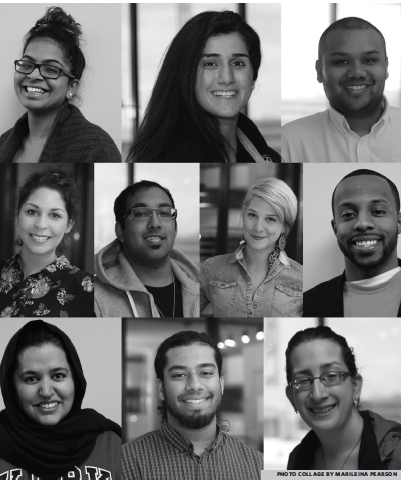 Voting has started for the Federation of Students elections, and there’s a lot at stake this year, with three slates in the running.
Voting has started for the Federation of Students elections, and there’s a lot at stake this year, with three slates in the running.
If you’ve been here for as long as some of us have, you’ll remember that last year, the presidential candidate for the opposing slate York Now was disqualified and then reinstated with no time left for him to campaign, and in 2011, almost every position was acclaimed because no one would run against the incumbents.
Alot of you have been coming to us with news tips and frustrations with the way the YFS has handled the hundreds of thousands of dollars that come out of your tuition.
However, that concern doesn’t seem to translate into election day. The voter turnout has been pathetic — approximately 7 per cent of 53,000 YFS members voted last year—but the work the YFS does continues to be of importance to students who attend York.
An enrollment deposit decrease, the creation of an official sexual assault policy, and more food options on campus are among the issues this year’s executive team has fought for, along with a huge list of events and a concert. The students who hold prominent positions at the YFS will shape next year’s student experience
When our editorial board sat down to discuss who we would endorse this year, even though we’ve all been covering the same campus for almost a year, we initially agreed on absolutely nothing. We didn’t think we’d be able to come to a collective decision on the best people to represent the student body because we all have different priorities. But there ended up being a few candidates who stood out to us.
For President of YFS, York United’s Hamoudi Hneinou is, without a doubt, the most qualified candidate. Having served as vp operations this year, and having been involved in a slew of clubs and organizations since his start at York, Hneinou is informed about student concerns and the bureaucracy you have to go through to address them.
For next year, his goals are realistic. He plans to expand mental health initiatives and get rid of the $15 shoe tag fee we have to pay to use the Tait McKenzie Centre next year. Of course, he plans to continue to lobby for lower tuition, but acknowledges that it’s not a fight he can win in one year. Small goals. Big potential.
Gayle McFadden, York United, looks to return to her position vp campaigns and advocacy. She’s probably the most visible of the current exec team, and you’ve likely seen her on campus, talking to students. McFadden wants to continue building on her initiatives from this past year. Her main focuses include lobbying for lower tuition, changing add and drop deadlines—a source of stress for a lot of us—and continuing to fight for healthier, and more affordable food options.
Stephen Mulholland, who is running for vp equity with YUFirst, is a refreshing, new face this year. While he has no experience on the YFS, he’s worked as an outreach ambassador at the Centre for Human Rights and as a Diversity Peer Education Team Lead, on top of other commitments.
Mulholland has no loyalties in the mess of links that is the YFS. He also has a list of solid goals for next year, including discrimination and anti-oppression training for clubs, establishing a student well-being program to reduce stress, and expanding anti-oppression events.
After much deliberation, we couldn’t agree on who to endorse for vp campus life and vp operations. Several issues remain regarding these positions. Our options are limited, as YURed doesn’t even have a candidate to fill the vp campus life role. Some of our editorial board feels none of the existing candidates are suitable, while others believe one has a slight edge over the other. The truth is that there is no clear cut candidate for either slot, and voters will have the difficult task of choosing, just as with every other slot, according to what’s important to them.
These elections, with promising candidates on the incumbent slate and the opposition, bring with them an opportunity for change.
Having had the chance to meet everyone in the running, we have one piece of advice for you: vote for the student, not the slate. Spend an extra five minutes online to read about their experiences, planned initiatives, and qualifications—this could make the difference between having a good student experience, and a great student experience next year.


